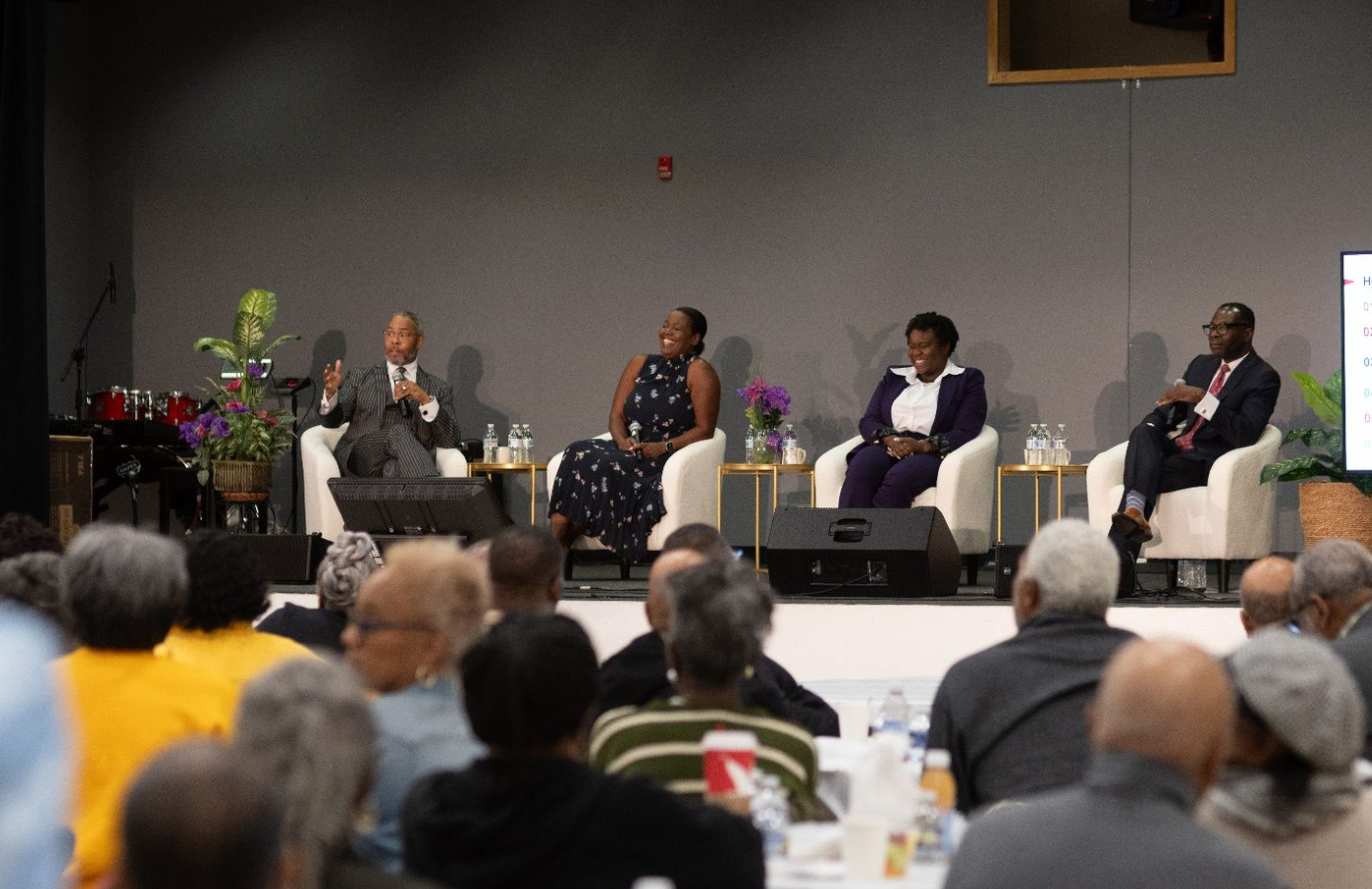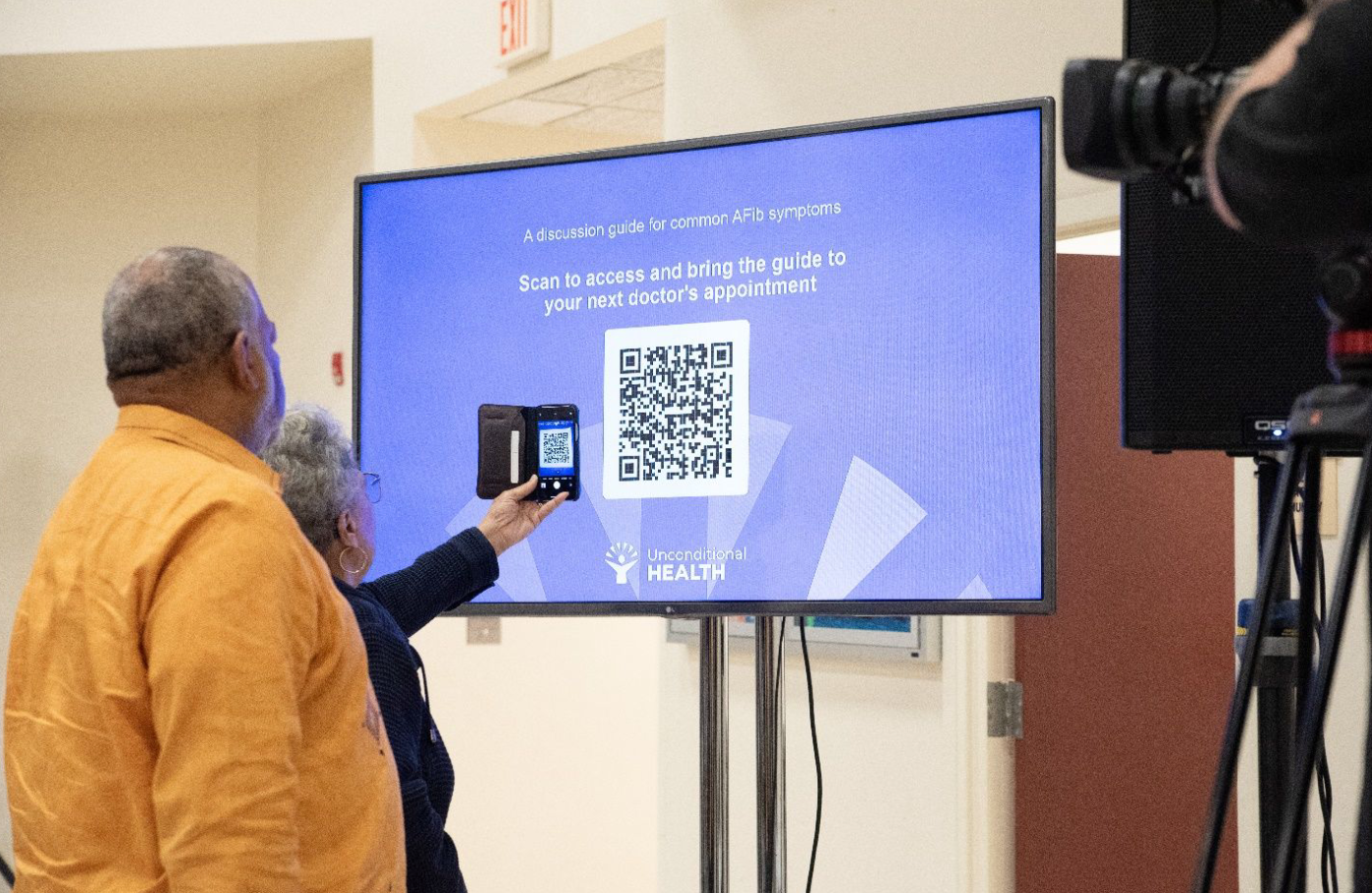
In order to help drive more just and equitable advancement, access and outcomes in healthcare, society should work to address the issues of health disparities across under-resourced communities. Take heart health, for example. African Americans are 50% more likely to have a stroke as compared to non-Hispanic white Americans and African American men are 70% more likely to die from a stroke as compared to non-Hispanic white Americans¹. Furthermore, African Americans with atrial fibrillation (AFib), the most common type of irregular heartbeat, are 30%³ less likely to be aware that they have the condition as their non-Hispanic white American counterparts.
Bristol Myers Squibb (BMS), a global pharmaceutical company whose vision is to transform patients’ lives through science, is striving to help close the gap when it comes to health disparities. “We are in a unique time, and as a company, we have had many conversations about the serious challenges facing the African American community and have learned a great deal about persistent health disparities that leave under-resourced and minority communities at greater risk of poor health outcomes” said Chris Boerner Chairman and CEO of BMS. “Now more than ever, we recognize our role in creating the change needed to address the health disparities and we will accelerate our work with key advocates to reach at-risk patients with disease awareness and education”.

One way they’re doing this is by helping raise awareness of the common symptoms of AFib, which include irregular heartbeat, heart racing, chest pain, shortness of breath, fatigue, and lightheadedness, and to encourage African Americans to seek medical advice if they experience one or more of these symptoms because people with AFib have about about 5 times greater risk of having a stroke⁴.
As a way to help improve the health of those in underserved communities, BMS piloted the ‘Unconditional Health’ initiative – An initiative with the goal of collaborating with Faith-Based Organizations to reach underserved populations. ENON Tabernacle Baptist Church, Philadelphia in collaboration with the Bristol Myers Squibb’s Unconditional Health campaign, hosted an in-person plenary session titled “Heart Health Matters,” on October 19, 2023. More than 600 people attended this event, which included a discussion on the common symptoms of AFib to help the audience better understand AFib and encourage important and timely conversations with a healthcare professional.
‘We have tried to create a culture of health here at the church. Given the data surrounding atrial fibrillation, stroke risk and our community, we believe it is part of our obligation to ensure our members are exposed to many facets of health and wellness’ – Rev. Leroy Miles, Pastor of Care and Community Engagement, Enon Tabernacle Baptist Church.
“We are grateful to the leadership of the Enon Tabernacle Baptist Church and acknowledge their role in helping us understand the needs, experiences, and challenges faced by African American patients and communities in detecting AFib. Their dedication to this cause is truly commendable, and we look forward to continuing our collaborative efforts to make a positive difference in the lives of those we serve.” – Monique Philips, Lead, BMS’ Black Organization for Leadership and Development.

Please visit the BMS Global Inclusion & Diversity website pages to learn more about our commitments to inclusion, diversity, and health equity, and how our 34,000 dedicated colleagues are leveraging our individual and collective power in service of our patients to help drive innovation in healthcare. “Heart Health Matters” is a testimony of this commitment and evidence of how we are taking steps to contribute and lead in areas where we can help make a difference.
Learn More About Atrial Fibrillation
It is projected that by 2030, approximately 12 million people in the U.S. will have AFib⁵, however, many people remain undiagnosed, dismissing their symptoms because they can come and go and can vary. Most common symptoms of AFib include irregular heartbeat, heart racing, chest pain, shortness of breath, fatigue, and light-headedness. Because AFib increases the risk of stroke by about five times, it is important for individuals to seek medical attention if they are experiencing these symptoms, even if these symptoms come and go. Only a healthcare professional can determine whether symptoms indicate AFib or another condition.
The Bristol Myers Squibb-Pfizer Alliance launched the No Time to Wait campaign to raise awareness of symptoms of AFib in 2020. Seeking medical attention early may help reduce the chance of AFib leading to something more serious. Visit NoTimeToWait.com to learn more.
References:
1 https://minorityhealth.hhs.gov/stroke-and-african-americans
2 https://www.ncbi.nlm.nih.gov/pmc/articles/PMC8712595/
3 https://www.ahajournals.org/doi/full/10.1161/STROKEAHA.109.573907
4 https://www.cdc.gov/heartdisease/atrial_fibrillation.htm
5 https://www.cdc.gov/heartdisease/atrial_fibrillation.htm
CV-US-2300619 12/23





